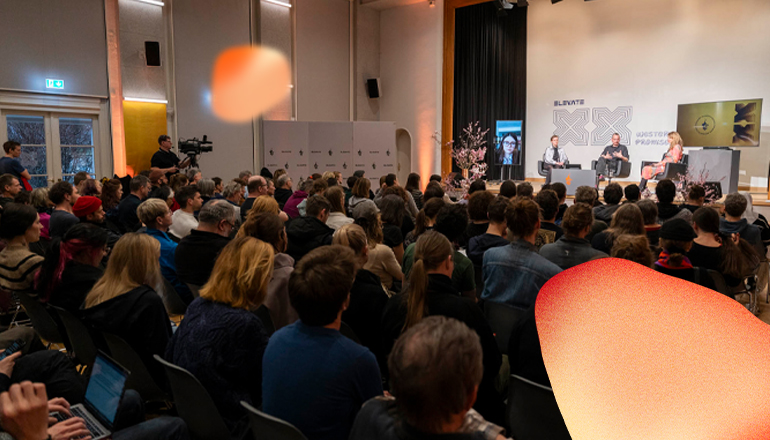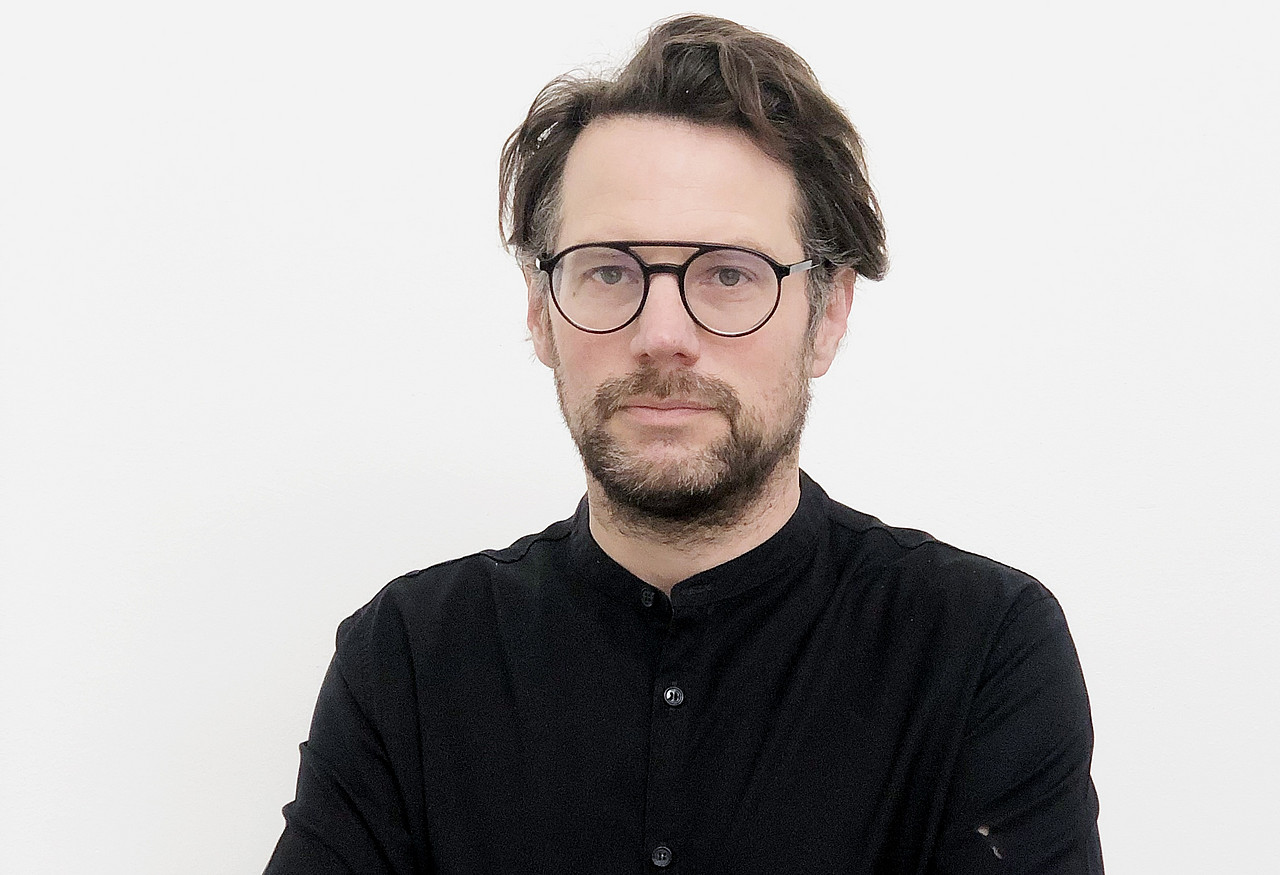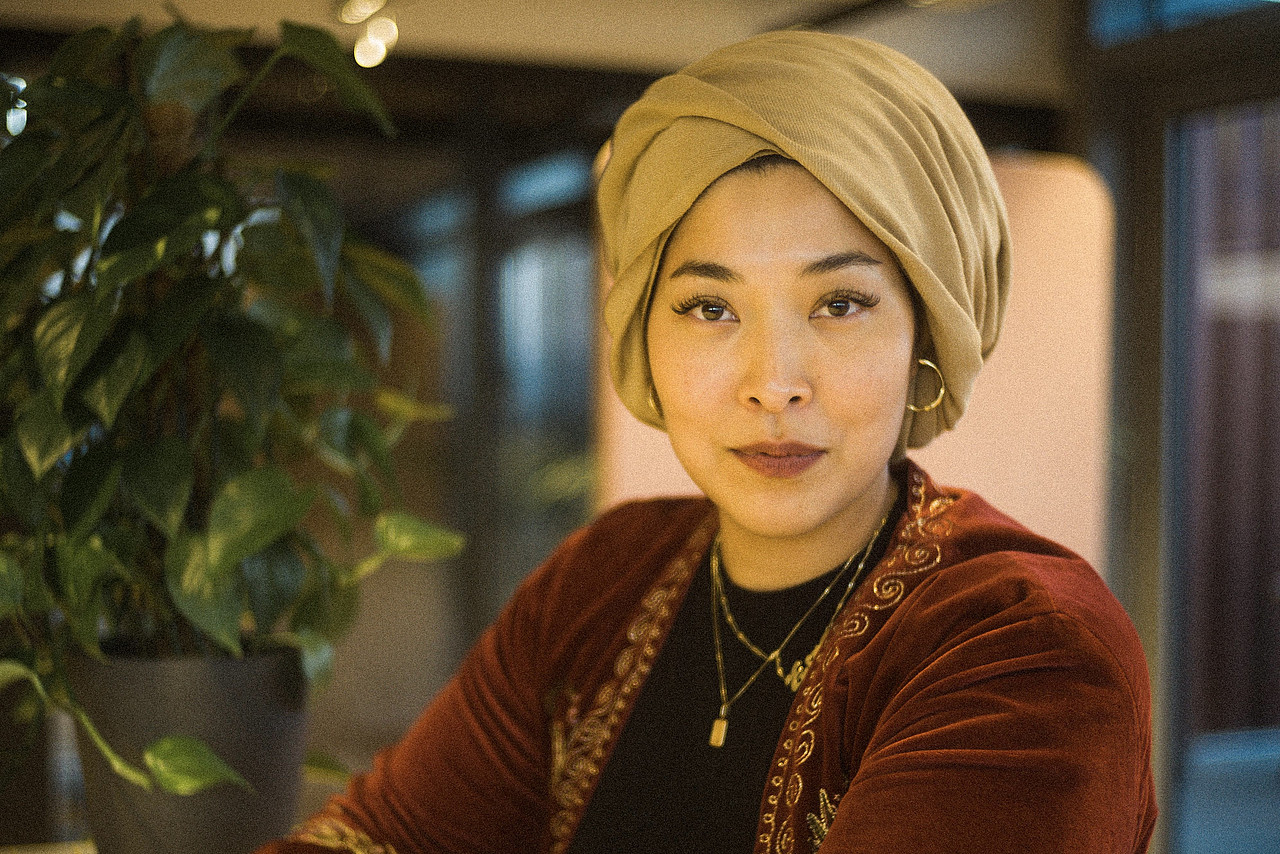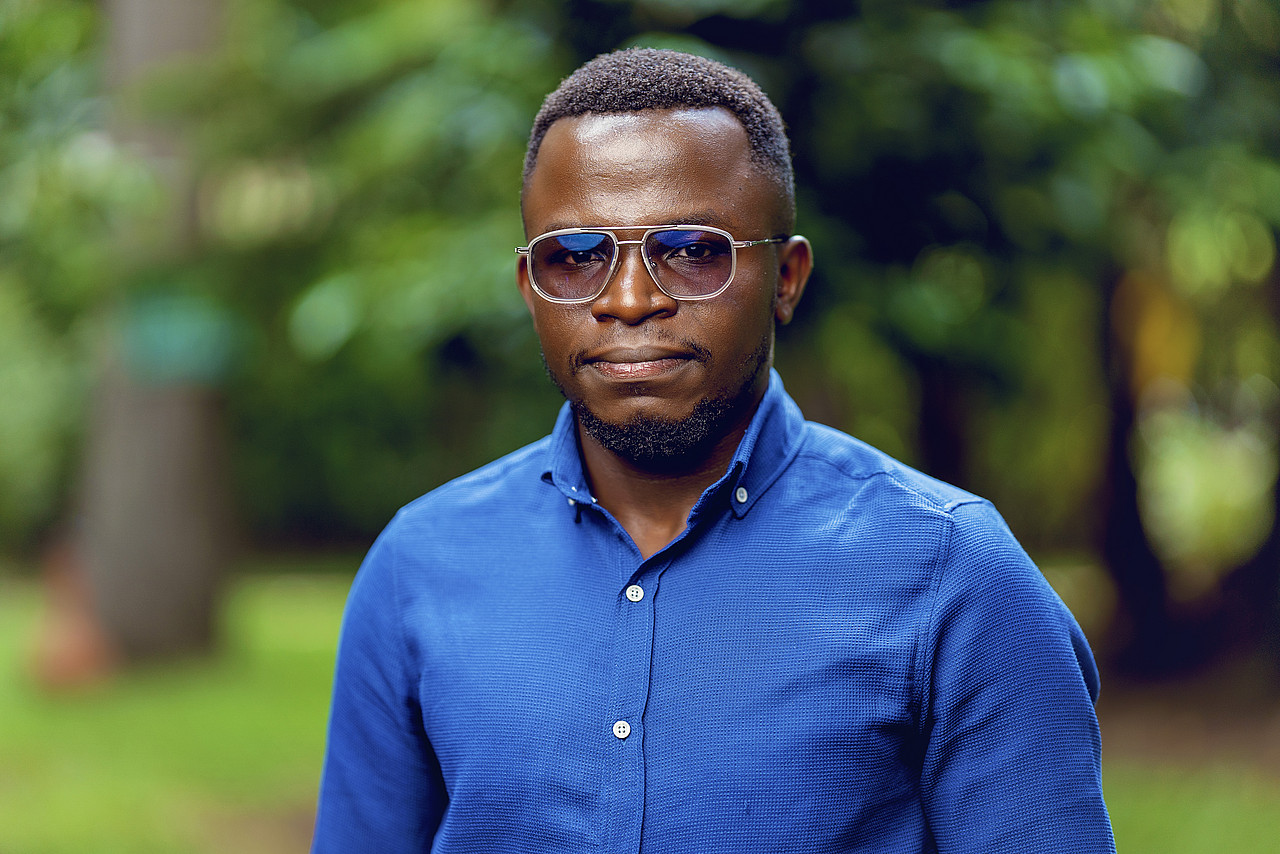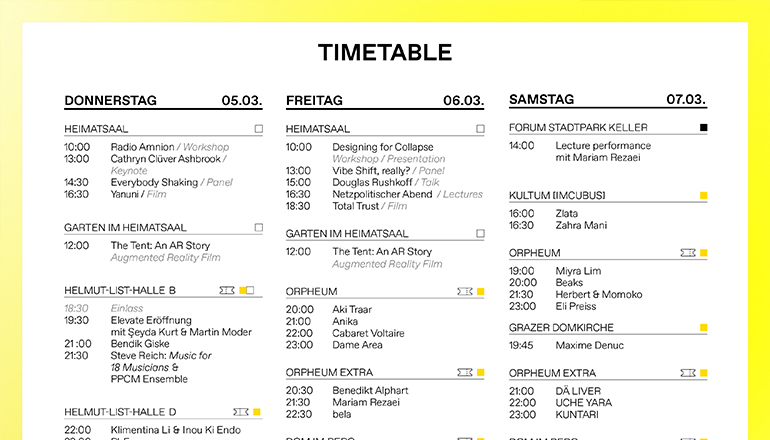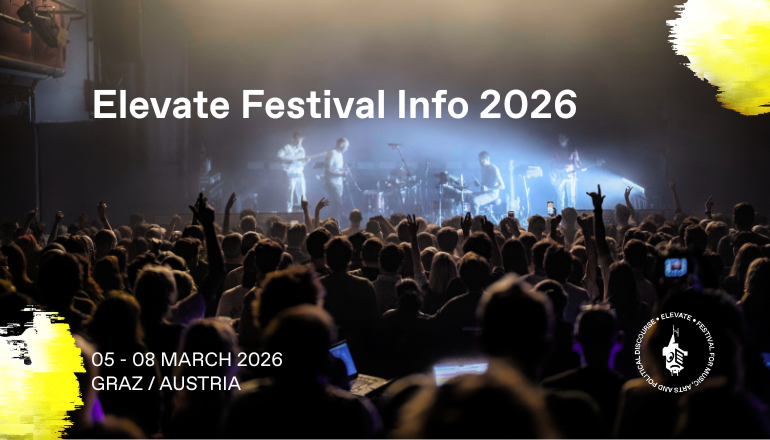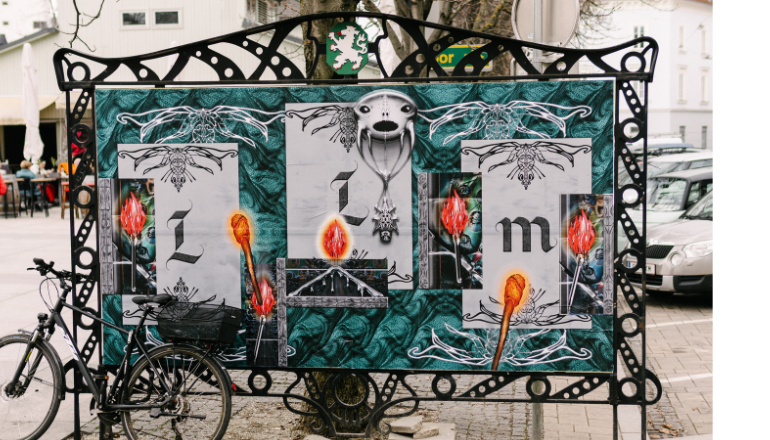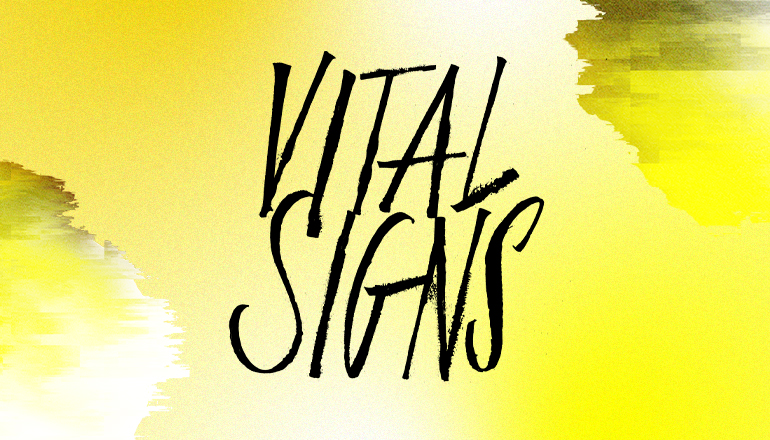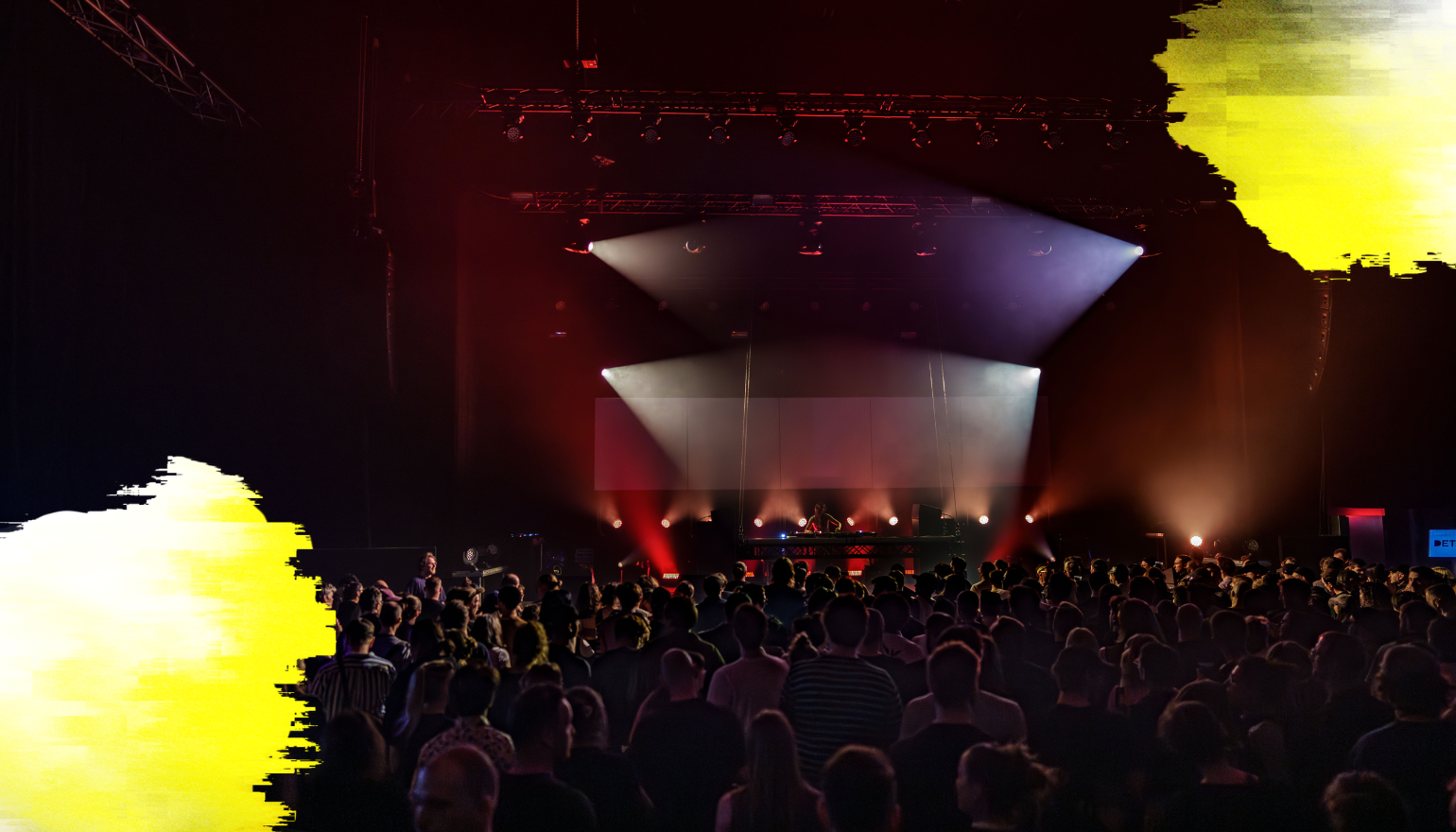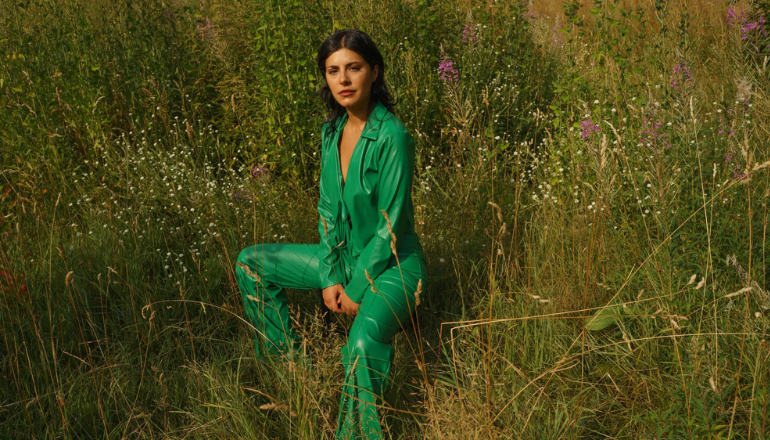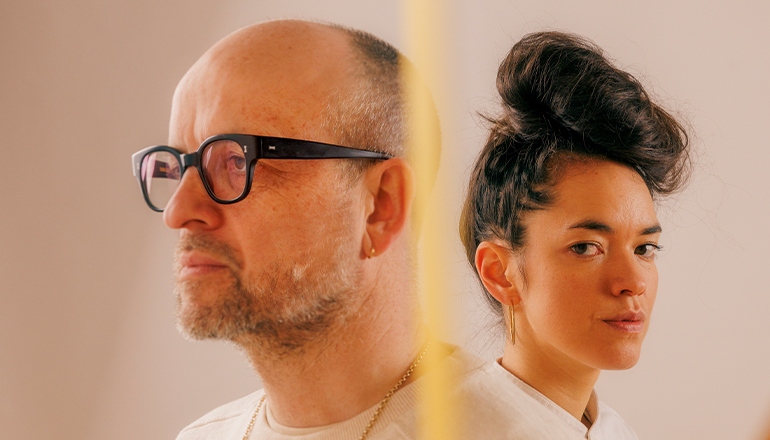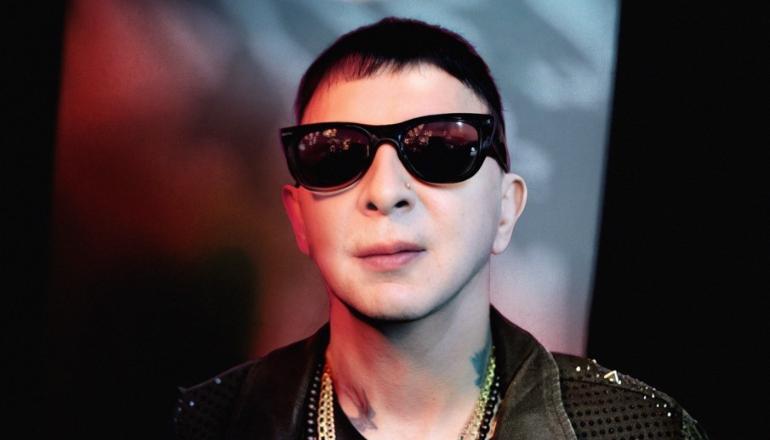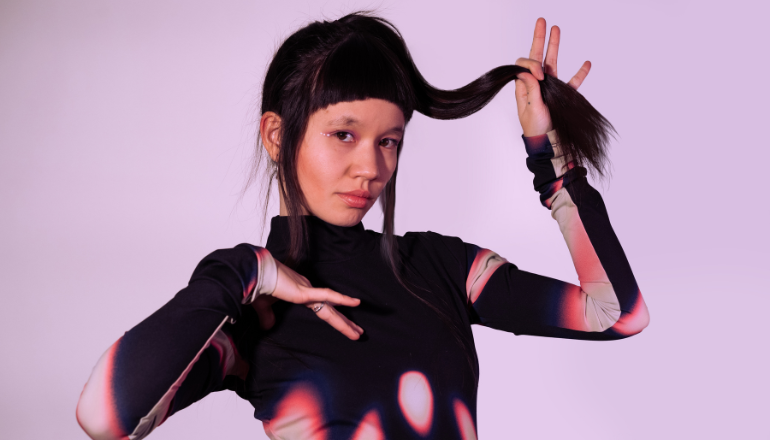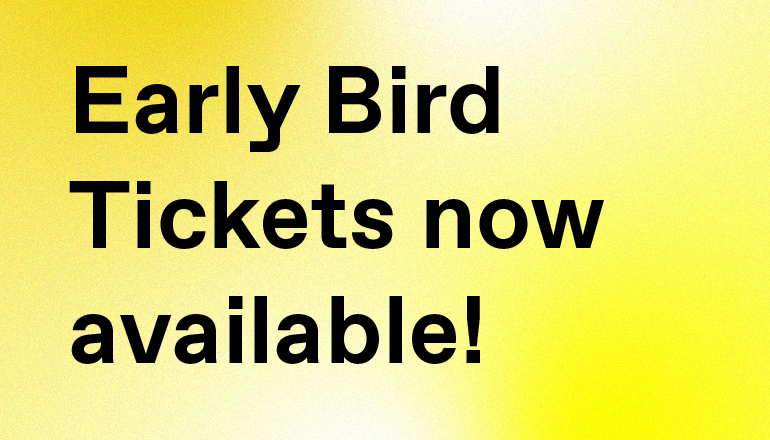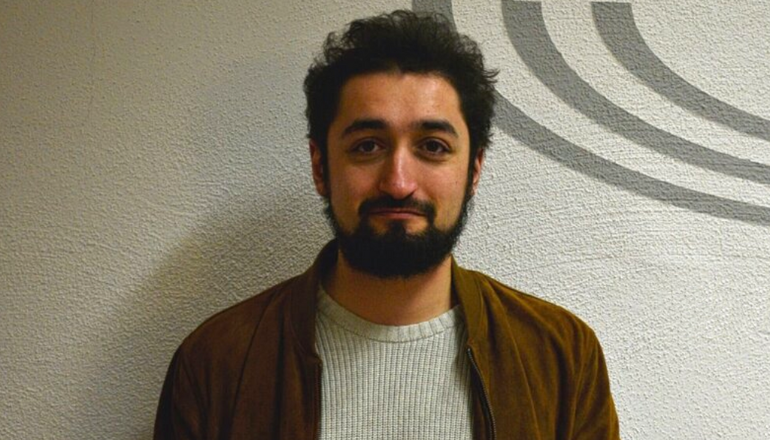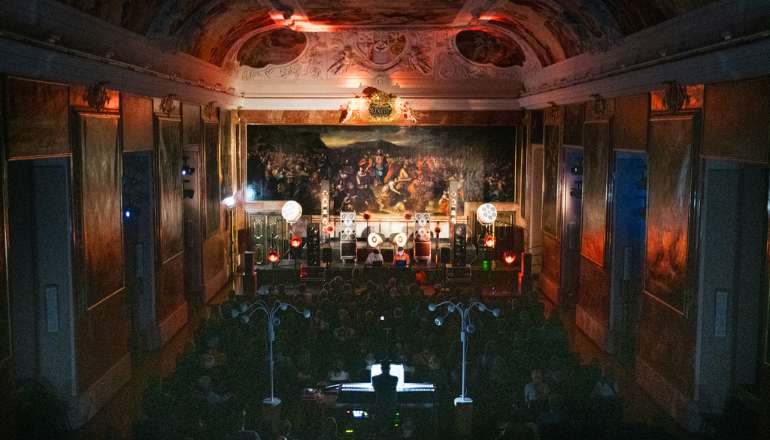Discourse Guide
Trust is the foundation of every connection, every cooperation, and every change. Yet in a time when disinformation, polarizati- on, and systematic attacks dominate the public space, trust of- ten seems like a lost luxury, out of fashion in a world of constant change. However, it is not blind trust that moves us forward, but rather critical trust— a trust that dares to ask questions, shares responsibility constructively, and shapes the future.
Elevate Festival 2025 invites you to engage with the art of trust: How is it formed, where is it blocked, and how can it
be renewed? Trust is not a naive stance, but a foundation for courage, action, and the collective creation of new structures. From the fine line between justified skepticism and destructive cynicism, to the radical questions: Who do we trust, why—and how can we earn or deserve that trust?
For these and other questions, the Heimatsaal at the Graz Volkskundemuseum will once again be the venue for an open discourse of perspectives, with both local and international guests.
At the heart of the discourse is dialogue: from the power of critical thinking to the ways in which we can draw hope from the depths of our systemic crises. For without trust, there is no action. No change. No tomorrow.
„Ok, Doomer“ – dancing on the edge is only possible if we keep our eyes wide open..
Thematic Day 1: Together Through the Climate Collapse, Critical Trust-Building, and the Media in the Trust Crisis
The first day of the discourse programme, on Thursday, 6th March, starting at 10:00 AM, kicks off with an interactive work- shop on trust-building in the climate crisis and dealing with Climate Anxiety. Together with Swiss physicist and climate
risk expert Samuel Eberenz, participants will explore how trust, collaboration, and resilience can be built beyond the trap of indi- vidualism. They will also experiment, during a festival visit, with how despair can be transformed into collective action.
The day continues with a keynote by Friedrich von Borries, Professor of Design Theory at the University of Fine Arts in Hamburg. He researches the relationship between society and design, focusing on sustainability and possibilities for societal transformation. Moving within the fields of architecture, design, and art, he will demonstrate in his lecture, through architectural history, why a certain level of mistrust is often quite justified—at least in architecture.
No Trust – No Action: No change?
The first panel discussion also addresses the conditions and challenges of critical trust-building. In the panel „No Trust No Action“, Lea Dohm, psychologist, activist, and co-founder of Psychologists For Future, Mazda Adli, psychiatrist and expert in urban stress research, and Emina Saric, expert in integration and gender issues, will tackle the big questions under the mo- deration of transformational psychologist and Elevate curator Irina Nalis: How can critical trust—neither blind nor destructi- ve—be created? What promotes or weakens it, and what role do future anxieties play in this?
The next panel focuses on „Media in the Trust Crisis“. Esra Karakaya, journalist and found of KARAKAYA TALKS, will talk about target audience-oriented and community-focused journalism while Nadja Hahn, long- time ORF journalist and now Media Relations and Communica- tions Manager at IIASA, will address the challenge of commu- nicating complex issues like the climate crisis in a world where fact-checks are dismissed as restrictions on freedom of speech. Together with Daniel Drepper, co-founder of Correctiv, and Georg Renner, political journalist, they will discuss transparen- cy, investigative journalism, and new funding models. The panel will be moderated by Julia Herrnböck.
Artist Talk with Suzanne Ciani
To conclude the day, there will be an Artist Talk with the American composer, musician, and „America‘s first female synth hero“, Suzanne Ciani. Active since the 1970s, she is considered one of the early pioneers in the field of synthesizers and electronic music, as well as a trailblazer in sound design for film and advertising. In this conversation, we will look back at her groundbreaking career and her pioneering contributions to electronic music.
Thematic Day 2: Non-Human Intelligences, Un/Trustworthy AI, and Net Politics
Friday, 7th March begins at 10:00 AM with the workshop „Manuals for Designing Trust“. Students from the Information Design program at FH Joanneum in Graz will develop and share their user manuals, exploring how design is used as a strategic tool by influential actors such as corporations and governments to generate trust. They will be supported by program director Birgit Bachler and Irina Nalis.
The day‘s keynote comes from James Bridle (they/them), re- nowned British artist, writer, and technologist, who is a thought leader on our technological future. They have been commenting on digital and technological innovations for renowned media such as The Guardian, Wired, and The Atlantic. In their latest
book, The Unlikely Diversity of Being, Bridle explores the diver- sity of non-human intelligences and demonstrates how we can think of plant and animal intelligences in dialogue with artificial and human intelligence.
“The danger isn’t that AI destroys us. It’s that it drives us insane.” Jaron Larnier
The first panel on Friday, moderated by Christoph “Burstup” Weiss, brings together experts who challenge the uncritical trust in AI and the power structures behind it. Irma Masten- broek, an expert in global AI standards and an activist for queer and feminist tech politics, advocates for responsible develop- ment and adherence to technical standards that promote social justice. Eugenia Stamboliev, a media scholar and philosophy of technology expert, researches issues of trust and distrust related to AI, with a focus on discrimination and gender bias. Alfred Ongere, founder of AI Kenya, demonstrates how AI is used in East Africa as a tool for education, democracy, and fighting corruption, emphasizing the importance of involving local communities in the shaping of technology.
Thematic Day 3: Trust in Global Politics Under Scrutiny, Dia- logue on the Middle East Conflict and Feminist Struggles in Constant Renewal
The workshop on Saturday, 8th March, will build on Friday‘s theme. Dutch AI and future researcher Freyja van den Boom will encourage participants to develop the necessary skills and imagination to actively drive change. Her approach combines legal perspectives, foresight governance, and speculative de- sign impulses to create a fairer and more inclusive technological future.
In her keynote, Barbara Prainsack, Professor of Comparative Policy Field Analysis at the University of Vienna and head of the interdisciplinary research platform Governance of Digital Practi- ces, will explore the causes of the declining trust in politics and address the central question: When the public no longer trusts the government, „What comes after trust?“
Under the title “Political Trust on Trial”, international perspec- tives on trust, power, and democracy will be discussed: Paul Krisai, ORF foreign correspondent in Moscow, will report from inside authoritarian systems where propaganda and power calculations use trust as a tool. Gvantsa Gverdtsiteli, expert at Transparency International, will highlight how corruption destroys trust in climate policy and international cooperation. Lukas Hermsmeier, journalist and author, will show how social movements in the USA build trust from the ground up and mobilise against institutional failure. Moderated by Professor Roberta Maierhofer, cultural scientist and head of the Centre for Inter-American Studies at the University of Graz, the panel will critically examine how political trust is squandered, manipu- lated, or redefined worldwide.
Next, the panel „Outrage, Empathy, and Engagement“ will focus on the Middle East conflict and the tensions in the dis- course about Israel-Palestine. The central question is how a dia- logue free from anti-Semitic, racist, or anti-Arab sentiments can be possible while taking the suffering and perspectives of all affected seriously. How can we talk about such an emotionally and historically charged topic without falling into polarization, and instead create a space for dialogue?
The discussion will feature Jens Balzer, author and feuilletonist, who critically addresses the progressive left’s reactions to the 7th of October in his essay After Woke. Tom Khaled Würde- mann, Middle East scholar at the Graduate School Ambivalent Enmity at the University of Jewish Studies and Heidelberg Uni- versity, who researches the Palestinian national movement and is an educator actively fighting against racism, anti-Semitism, and extremism. Jouanna Hassoun, who fled Lebanon before the civil war and has Palestinian roots, is a co-founder of the association Transaidency and advocates for Palestinian-Jewish dialogue as well as against anti-Semitism and Islamophobia. The panel will be moderated by Yilmaz Gülüm, ORF Report journalist.
The discourse programme will conclude on International Wo- men‘s Day with the film Army of Women by Norwegian director Julie Lunde Lillesæter. The film follows a group of women in Austin, Texas, who come together to take legal action against the system that allowed their rapists to go unpunished. An Army of Women tells the groundbreaking story of women fighting to hold law enforcement accountable, offering a story of global, compelling relevance.
Discourse
Alfred Ongere (KE) | Barbara Prainsack (AT) | Birgit Bachler (AT) | Christoph Burstup Weiss (AT) | Daniel Drepper (DE) | Eugenia Stamboliev (AT) | Elisabeth Kury (AT) | Emina Saric (BA/AT) | Esra Karakaya (DE) | Freyja van den Boom (NL) | Friedrich Moser (AT) | Friedrich von Borries (DE) | Georg Renner (AT) | Greta Pomberger (AT) | Gyan Tripathi (IN) | Gvantsa Gverdtsiteli (GE) | Irma Mastenbroek (NL) | Irina Nalis (AT) | James Bridle (UK) | Jens Balzer (DE) | Jouanna Hassoun (DE) | Julia Herrnböck (AT) | Lea Dohm (DE) | Lisa Duschek (AT) | Lori Baldwin (US) | Lukas Hermsmeier (DE) | Mazda Adli (DE) | Nadja Hahn (AT) | Paul Krisai (AT) | Roberta Maierhofer (AT) | Samuel Eberenz (CH) | Sebastian Kneidinger (AT) | Suzanne Ciani (US) | Tom Khaled Würdemann (DE) | Yilmaz Gülüm (AT)
